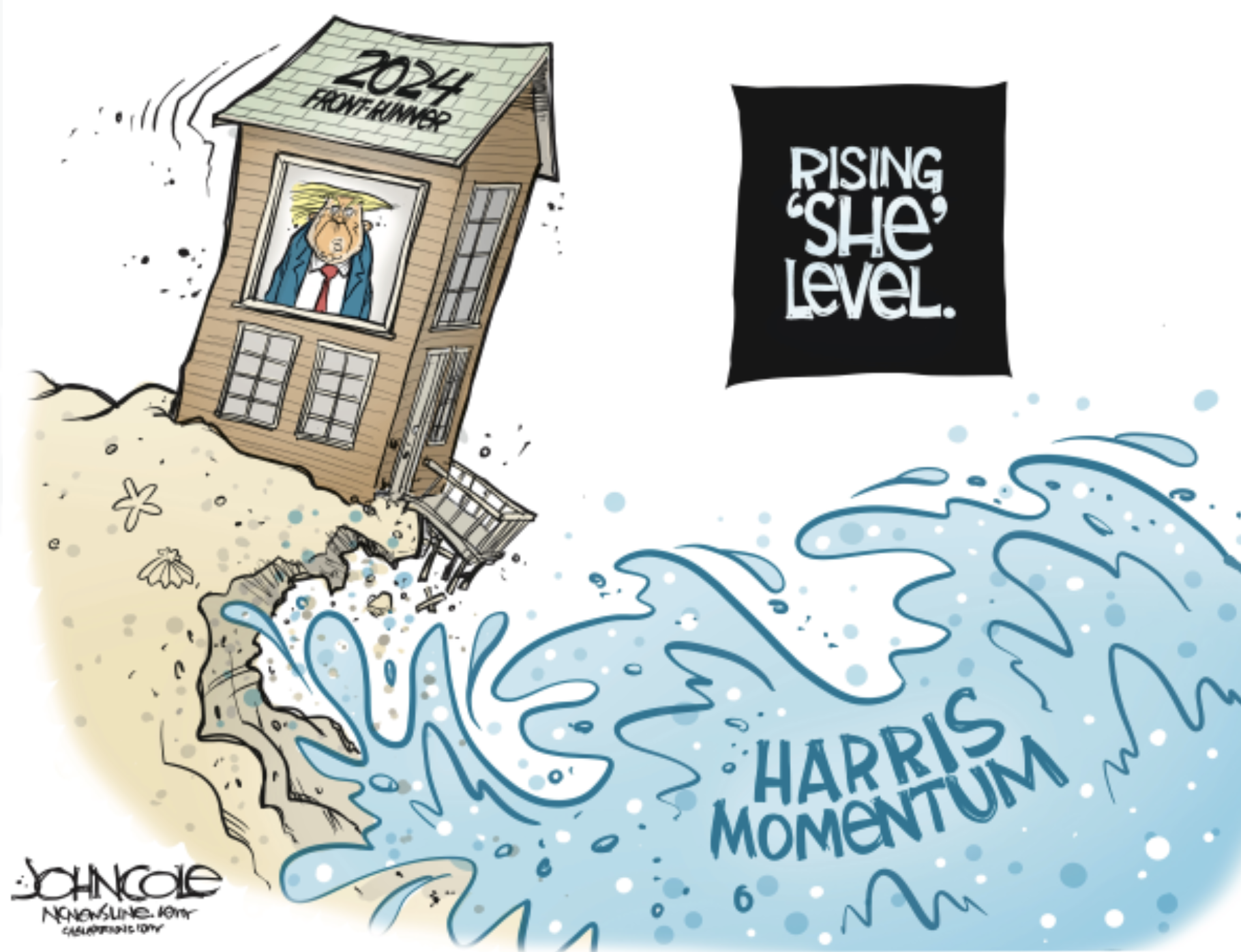The topic of gender and rhetoric is a captivating one, especially when it comes to how people judge assertive women speakers. Kamala Harris, for example. Her wide and deep professional experience helps her stand up for herself; she expects to be treated as a full professional. We saw it when VP Mike Pence attempted to interrupt her during the Presidential debates in 2020 and she chastised him. “I’m speaking,” she said. Her forceful questioning of Brett Kavanaugh received “horrible” and “nasty” tags from Donald Trump. During a Senate hearing with Attorney General Bill Barr in which he was evasive and challenged her, Harris reminded him, “I’m the one asking the questions here.”
I’ve written about the “likability issue” that Hillary Clinton faced and the name calling that women in politics can experience when they are described in terms of their marital status, sexuality, appearance, and even their tone of voice when they are assertive. Harris would never be seen as a policy wonk nor an academic as Clinton was, but rather conveys her skills as a prosecutor who can grapple with the most aggressive person, including a bully in the White House. She tells Trump in no uncertain terms, if you have a problem with me, “Tell me to my face.”
Like Clinton and other women seeking power, Harris walks a fine line between being seen as too tough or too soft. She certainly doesn’t downplay her toughness when disrespected and when necessary to pursue justice for the People. But anyone watching her acceptance speech at the Democratic Convention would have noted a shift in her style. She wanted us to relate to her story of respect for her mother and devotion to her family of origin as well as her blended family. You and I are alike, she seems to be saying.
Let’s consider the context for this race. First, consider how much the political landscape has changed since 2016. Brandeis President Jill Greenlee said:
“Hillary Clinton’s presidential candidacy (and subsequent loss to Donald Trump) inspired a wave of women to run for office. That means that Americans have had more opportunities to see women as candidates, elect women, and see women hold public office since Clinton’s 2016 campaign.”
Second there is the force of the #METOO movement, which in 2002 brought strong public attention to the degree of sexual harassment in the workplace. Diverse women and men became politicized and insisted on workplace protections for themselves and others. Issues of class, race, and gender converged producing new coalitions with a unique lens for reviewing political candidates’ sensibilities. Kamala Harris has a demonstrated track record when it comes to women’s issues.
Third, people have realized the power of the Presidency when it comes to determining women’s rights. Consider what the Trump presidency did to women’s rights in his three SCOTUS appointments. They led to the stunning Dobbs v. Jackson Health Supreme Court decision, which overturned Roe v. Wade and ended 50 years of women’s legally affirmed constitutional right to an abortion. Until Dobbs, women had been guaranteed the right to end an unwanted pregnancy when an abnormality in the fetus’ development was discovered, when the woman’s life is in danger, or her own personal reasons. No surprise that the Dobbs decision was a wake-up call to women of reproductive age who suddenly realized the power of politics to affect their personal lives. As a result, many became engaged in electoral politics for the first time.
When the Supreme Court sought to shift power to the states to decide on access to abortion, Kansas lawmakers proposed a state constitutional amendment to make abortion illegal for any reason; however, younger women’s activism led voters to reject it. And voters in six other states — California, Kentucky, Michigan, Montana, Ohio, and Vermont — have sided with abortion rights supporters on ballot measures. New constituencies of young Americans are rising up to push back against ultra-conservatism policies. Also, as a result of the Dobbs decision, there was a surge in female voter registration.
Fourth, and as a result of these dynamics, many women ran for office for the first time. 2024, according to the Center for American Women in Politics (CAWP), the 118th Congress has a record number of women. A record number of women were elected to statehouses and now one-third of legislators are women (everywhere except the southeast), which is the greatest proportion of female state legislators in the country’s history. Beyond political endorsements by elected women, Zoom technology is being used to produce one-hour meetings with everyday citizens who are voters. In this way, diverse groups have raised millions for her campaign.
Fifth, if elected, Harris would have international company on the world stage. As of 2024, 18 countries have a woman head of state, and 15 countries have a woman head of government. Research on women’s leadership by Esther Duflo, a Nobel laureate in economics, confirms, “Time and again, women leaders have shown that they are not only more sensitive to the needs of women and children, they are also more effective,” Nicholas Kristoff noted in the New York Times on July 13, 2024. Harris will find more support on-the-ground than Clinton did in her Presidential bid.
Many older feminists have waited for this day to come around again. Still, one must wonder whether a sufficient number of Americans have changed their sexist and racist attitudes in order to elect Harris. Will you support Kamala Harris’s bid for the U.S. Presidency? If you do, you will help her shatter what Hillary Clinton called “the hardest glass ceiling of all.”

